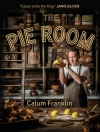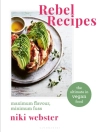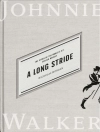Wine is seen as the natural partner of many great cuisines, but few people associate it with Persian food, one of the world’s most sophisticated culinary traditions. The ties, in fact, are age-old. From Persia to Napa: Wine at the Persian Table weaves together history, poetry, a look at modern viniculture, and a wealth of recipes and wine pairings to celebrate the rightful relationship of wine and food on the Persian table
“Whoever seeks the origins of wine must be crazy, ” a Persian poet once declared, implying that simple enjoyment of this greatest gift of the grape ought to be enough. Since he wrote those words, however, winemaking has been traced all the way back to the northern uplands of the Fertile Crescent some seven millennia ago, the start of a journey that would take it across the Near East and then into Europe in the dawning years of civilization. Iran was one of the nurseries of the wine grape, and, as empires rose and fell there, princes, priests, poets and people in ordinary walks of life all embraced wine in various ways. After Islam came to Iran, wine drinking sometimes slipped from public view, but it never disappeared. In this lavishly illustrated book, Najmieh Batmanglij explores that long and eventful history, then shifts her story to California’s famed Napa Valley, half a world away. There, in a kind of up-to-the-minute homage to the past, an Iranian-American named Darioush Khaledi uses the latest vinicultural techniques to make superb wines at a winery reminiscent of Persepolis, the ceremonial capital of the ancient Persian empire.
The final section of the book offers 80 recipes, a guide to Persian hospitality, both old and new, and seasonal menus for various occasions. Grapes play a role in most of the recipes, whether in the form of the fruit, the leaf, the juice, the syrup, unripe grapes or their juice (verjuice), vinegar or wine. Although these recipes are presented for the modern table, they are traditional—based on sources as various as a tenth-century Persian cookbook or the culinary archives of a sixteenth-century Persian court.The book has two special sections. One, written by Dick Davis, a leading authority on Persian literature, discusses the unique links between poetry and wine-drinking in Persian culture. The other, by wine-and-food expert Burke Owens, offers guidelines for pairing wine with the distinctive ingredients used in Persian cooking. He has also provided wine suggestions for each recipe.
Über den Autor
Dick Davis brings a unique array of gifts to the challenges of translating Hafez and his contemporaries. In his own right, he is a poet of great technical accomplishment and emotional depth. He is also the foremost English-speaking scholar of medieval Persian poetry now working in the West. Numerous honors testify to his talents. In the U.K., he received the Royal Society of Literature’s Heinemann Award for his second book of poems, Seeing the World, in 1981; his Selected Poems was chosen by both the Sunday Times and the Daily Telegraph as a Book of the Year in 1989; and his collection Belonging was selected as the Poetry Book of the Year by The Economist in 2003.












